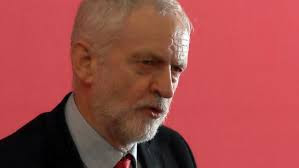Let’s be clear: ‘looked like’ means he had a similar skin colour.
This kind of ingrained racism is something from which many suffer for the colour of their skin or because they are Muslim. Suffer not once but repeatedly.
By contrast, though my mother’s family suffered from antisemitic persecution in the 1930s and 1940s – ninety relatives in Lithuania disappeared without a trace – I haven’t personally suffered any kind of threat or insult based on my Jewish roots. In particular, in my membership of the Labour Party, I’ve never seen any antisemitic behaviour directed against me or anybody else.
That’s not to say that I think antisemitism doesn’t matter. On the contrary, I think it matters deeply. It is a pernicious disease, just like any form of racism, such as the far more widespread Islamophobia in our society. It needs to be resisted, above all by the political left of centre, which ought to be the beating heart of anti-racism.
This means that any trace of antisemitism within the Labour Party itself has to be extirpated quickly and decisively. Not because antisemitism is in any sense the most important form racism, but because if we are tolerant of any form of racism, we weaken our position to combat all the others.
We owe it Afiz Shah and so many like him not to let that happen.
Many Jeremy Corbyn supporters claim that the accusation of Labour antisemitism within Labour is merely a stick used by his opponents to beat him. It certainly is such a stick, which is another reason that makes it urgent to deal with the problem. That it isn’t only such a stick is made clear, however, by Corbyn himself, in his statements of the seriousness of the problem.
‘We have not done enough to get to grips with the problem… my party and I are sorry for the hurt and distress caused’ he said before a meeting with Jewish leaders on 24 April.
 |
| Corbyn: not doing enough. Maybe not capable of doing enough? |
On the other hand, who if not the leader is responsible for making sure that sufficient action is taken?
The Jewish leaders he met were deeply dissatisfied. They could not, for instance, persuade him to adopt the definition of antisemitism used by the International Holocaust Remembrance Alliance. For information, this is:
Antisemitism is a certain perception of Jews, which may be expressed as hatred toward Jews. Rhetorical and physical manifestations of antisemitism are directed toward Jewish or non-Jewish individuals and/or their property, toward Jewish community institutions and religious facilities.
This seems so uncontentious a definition it seems hard to understand why Corbyn could not accept it and pledge himself to campaign for the party to accept it. He couldn’t bring himself to do it.
The most telling criticism came from Jonathan Goldsmith from the Jewish Leadership Council who said that Corbyn ‘engages in conversation until you ask him to do something.’ Or, as he told the BBC, ‘when you ask him to do something he has this habit of staring and just shrugging.’
Corbyn has been a backbench MP for 35 years. For 35 years he has been paid to talk and write about politics in the highest forum Britain offers for it, but he’s never been called on to take responsibility for putting anything into action. Indeed, his image of a kind of saintliness depends on it: he’s never sullied his hand by actually having to deliver anything in reality.
Thirty-five years is a long time that produces ingrained habits. Perhaps to stare and shrug when asked to do something. It is now nearly a month since Jews protested in Parliament Square against antisemitism in the Labour Party, and we are still in a position in which Corbyn has to admit that ‘we have not done enough’.
I said before that it took courage to make that admission. Unfortunately, while leadership certainly requires courage, it needs more than courage alone. Another essential quality is decisiveness.
Sometimes Corbyn can be decisive. He quickly fired Owen Smith from his team for publicly espousing a position on the EU with which two-thirds of the Labour Party agrees. Unfortunately, there’s a suspicion that some of the antisemites against whom he’s required to take action are supporters, possibly friends, of his. Is he less decisive with his friends than with an avowed opponent such as Smith?
Wobbly with his friends. Accustomed to speaking a lot but doing far less. Corbyn seems fated to disappoint on an issue needing to be addressed urgently – not for the sake of the Jews but for all those facing racial bigotry.
The question Corbyn really needs to answer is this one: is he up to the job? Now, making an admission in answer that one will need far more courage than just accepting that too little has been done. An admission, after all, would have grave implications for his own position – implications he may not be willing to face.
Any more than his supporters are.
No comments:
Post a Comment